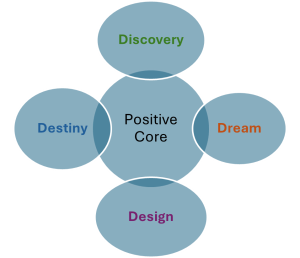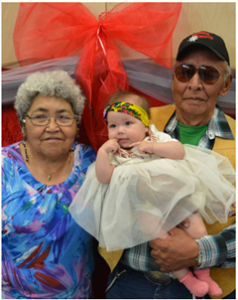1 What is Observation?
Observations are conducted every day in early learning settings. Educators are constantly surveying the environment and completing safety checks to make sure the equipment and materials are safe for the children to use. Educators also perform daily health screenings to ensure their children are healthy enough to participate in program activities. Beyond the standard safety check and health screening, educators have many other important tasks and duties that they must do in order to maintain a copacetic classroom environment. Intentional educators use their observations to plan and implement curriculum, set up engaging learning environments, monitor the children’s social interactions, track behaviours, communicate with families, and assess each child’s progress and development. Essentially, observations help educators be more accountable. By conducting regular observations intentional educators can:
- Evaluate program effectiveness
- Evaluate educator effectiveness
- Make improvements to ensure quality practices
- Plan and implement developmentally appropriate curriculum
- Measure and assess a child’s development
- Develop respectful family partnerships
- Understand the cultural practices and family structure
- Select effective learning strategies to support and accommodate the diverse needs of children
- Ensure ethical conduct and professional standards of practice
- Teach with confidence
Pin It
If we want to understand children, we must first watch them and listen to them. Then, we must try to make sense of what we observe and give it meaning. The role of observation is to provide educators with information and evidence that they will need to make informed decisions on how to best support the children in their care. With each observation, you will get a glimpse into a child’s developing mind. Not only will you see a child’s personality emerge, you will be able to see what a child can do. As you watch children, you will see how they problem-solve when conflicts arise and how they cope with the stress of being in a group setting. You will learn about their individual needs and their cultural practices. When you watch children closely, their interests and abilities are revealed. With each observation, you will gain useful insight that will help you become an intentional educator.
Becoming a Skilled Observer
To truly observe a child, you must be present, knowledgeable, inquisitive and intentional. With every observation, you will sharpen your skills as you learn how to effectively gather objective evidence and detailed data.
Be present: To capture all the individual mannerisms, subtle social nuances, non-verbal body language and dynamic conversations that occur throughout the day, you must be attentive, focused and ready to go at any given moment. Children move fast. When we blink, we are bound to miss some little detail or precious moment, that’s a given. Being present takes considerable effort and careful planning.
Be knowledgeable: Understanding the core concepts of early childhood education is extremely important if you are to set reasonable expectations and plan developmentally appropriate learning experiences. Familiarizing yourself with child development theories will help you understand and appreciate why children do what they do. Learning about the key principles in early care and education will provide you with a solid foundation and a wide range of instructional strategies to support a child’s development.
Be inquisitive: Think of yourself as a researcher. Your primary mission is to investigate the children in your care by routinely gathering evidence, using a variety of observation methods and tools. As a good researcher, you will need to ask some thoughtful questions. These questions will guide you as you plan purposeful observations and select your method of observation. Here are some sample questions you may ask yourself: What activities interest Max? How many times did Stevie hit today? What skills did Hazel master today with this activity, and what skills need further support? How long did Zoey stay engaged while playing in the sandbox? What milestones will this activity support? By asking thoughtful questions, you will learn more about the children in your care and you will do a better job at supporting each child’s individual needs. Rather than fixating on a child’s behaviour, in time you will begin using focused observations to try and figure out the reasons why a child acts the way they do.
Be intentional: As you organize learning experiences, set up the classroom and outside environment, assess children’s developmental progress, engage in activities, and interact with your children and families – you must have a thoughtful plan of action in place. “Intentional teaching means that everything you do as an educator has a specific goal and purpose” (Gordon & Browne, 2016 p. 103). Even as spontaneous situations arise, intentional educators must make the most of teachable moments. Intentional educators conduct regular observations and gather objective documentation data to be accountable for the actions they take, the plans they generate, and the assessments they make.
RESPONSIVE AND INCLUSIVE
For observations to be effective, educators must be responsive and inclusive observers to ensure that all children, regardless of their backgrounds or abilities, are seen, heard, and supported in a way that promotes their growth and well-being.
Being a responsive observer means being able to pick up on the nuances of each child’s behaviour, emotions, and interactions. It involves actively engaging with children, showing genuine interest in their activities, and responding appropriately to their cues. This attentiveness helps educators to identify the subtle signs of a child’s developmental progress or challenges, and this then enables us to respond appropriately. Responsiveness also builds trust and strengthens the relationship between the educator, child, and their family, creating a safe and supportive learning environment where children feel valued and understood.
Wisdom from Aboriginal Elders in BC teach us that: “every child is special; and every child needs to be treated with care and respect. Connecting to community and family helps children learn and to develop a sense of belonging”.
Teaching from Elder Mary Thomas, Shuswap Nation from Aboriginal Infant Development Program Of British Columbia
Skilled observers are also inclusive observers. This means that we recognize and respect the diverse backgrounds, cultures, and abilities of each child. It’s also important that we are aware of and challenge any biases or assumptions (either our own or those of other educators) that may affect how observations are conducted and interpreted. Inclusive observation practices involve considering the cultural and linguistic contexts of children, adapting observation methods to be accessible to all, and ensuring that every child has the opportunity to demonstrate their capabilities in various ways. This approach not only promotes equity but also enriches the learning environment by valuing and integrating the unique perspectives and strengths of each child.
Professional and quality standards in Early Childhood Education value and see the child as capable and competent is a provocation that has encouraged change in the way we observe children and create documentation.
Pin It
Provocation– Inspired by Reggio philosophy, provocations are materials or experience that educators set out to provoke children’s thinking. It is something that stimulates a response. It is build to expand and extend children’s unique ideas, interests and theories. It is built from deliberate and meaningful observation of children. Provocation is based on children’s wonderings and ponderings.
Haughey, S. & Hill, N. (2017). Provocations: A Start-Up Guide. https://www.mlfmonde.org/wp-content/uploads/2020/12/ProvocationsStart-UpGuide-1.pdf
APPRECIATIVE INQUIRY
Appreciative inquiry is a strength-based approach to observation where educators focus on children’s interests, abilities, and other positive aspects. When we observe through this lens, we are looking to highlight what children do well, what they enjoy, and how we can further promote the skills they’re demonstrating or extend on their interests. This is in contrast to a deficit-based approach where observers focus their attention more on where children might be lacking or what problems need to be solved.
The following quote included in Ontario’s “How Does Learning Happen?” pedagogical resource sums up appreciative inquiry beautifully: “Children are competent, capable of complex thinking, curious, and rich in potential” (Ontario Ministry of Education, 2014, p. 6). When educators observe children through this lens, we value them for the amazing people they are and reflect this perspective in our observations.
Appreciative inquiry can be represented by the following figure.

As you can see, there are four stages in this approach:
- Discovery
- Dream
- Design
- Destiny
Let’s take a look at each stage in more detail.
Discovery
The discovery phase in appreciative inquiry involves identifying the strengths and successes of children. When educators pay attention to times when children are engaged and joyful, they’re able to identify children’s unique abilities and interests, and this will help create a foundation upon which educators can build in the subsequent stages. Also, when educators’ discoveries are shared with children, they also see themselves through a strengths-based lens which promotes a sense of confidence and well-being and encourages them to continue exploring and learning.
Dream
In the dream phase, educators use what they discovered in the first stage of the cycle to help them envision the best possible outcomes for each child’s development and learning journey. Observing with this mindset involves looking for signs of potential and imagining the future possibilities for each child. Educators consider what the children might achieve if their strengths are nurtured and their interests are supported. In this stage, educators dream big for the children! By asking what could be, educators can set high yet achievable goals that motivate children to reach their full potential.
Design
The design stage translates the dreams from the previous stage into actionable plans where educators identify specific strategies and interventions that can help bring those dreams to life. Educators plan how to support and extend the children’s strengths and interests, creating supportive and responsive environments and experiences. This might include modifying the physical layout of the room, introducing new materials, or implementing specific activities.
Destiny (Delivery)
The destiny stage is when the plans that were designed are implemented. While this stage is exciting and the goal of the appreciative inquiry cycle, it’s important that educators continue to be responsive to children’s needs and interests by adjusting their approaches and ideas as necessary. And true to the nature of any cycle, after the plans are carried out, the process starts all over again with the educators observing children and watching for their strengths and what they enjoy so as to dream, design, and deliver (implement) all over again.
Wrap it Up
Observation plays a crucial role in pedagogical documentation. Pedagogical documentation involves collecting and analyzing information about children’s learning and development to inform and improve teaching practices. Appreciative inquiry has the power to help observers understand the capabilities of children, their value and curiosity.
- Page 64 The Integrated Nature of Learning (2016)by the CDE is used with permission ↵


